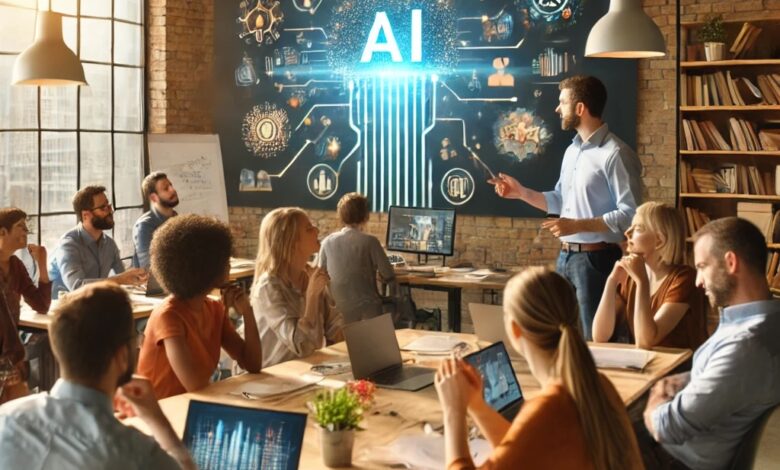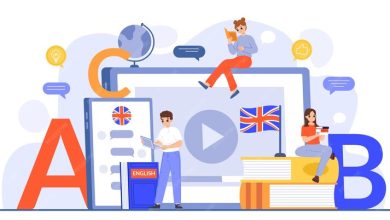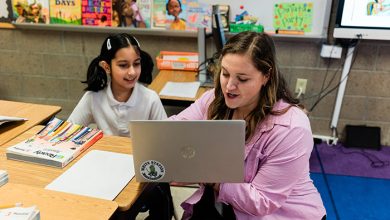
Artificial intelligence is reshaping education and professional development, requiring a reevaluation of how we prepare students for the evolving workforce. As a professor primarily instructing graduate data science students, I observe firsthand the profound impact of AI on both academic and industrial learning environments. With policies increasingly favoring AI-driven economic growth, the private sector must assume a pivotal role in ongoing education and workforce development. AI will be a driving force in shaping the next generation of learners and professionals.
The Need for AI Literacy
AI literacy should be regarded as a fundamental skill, akin to mathematics or writing. However, a significant portion of the population lacks a comprehensive understanding of AI’s capabilities and limitations. A survey revealed that 58 percent of students feel they lack sufficient AI knowledge and skills, and 48 percent feel inadequately prepared for an AI-enabled workforce (www.campustechnology.com/articles/2024/08/28/survey-86-of-students-already-use-ai-in-their-studies.aspx). This gap can lead to misinformation, suboptimal decision-making, and security vulnerabilities.
Implementing foundational AI courses in high schools would better equip future professionals to navigate an AI-driven world. These courses should cover machine learning basics, limitations, and ethical considerations. Without structured education, many students may struggle to distinguish between AI’s strengths and risks. Providing early exposure to AI concepts will ensure graduates enter the workforce with confidence and critical insight.
AI in Personalized Learning
Despite the potential of AI to make education more adaptive, its application remains limited. Learning management systems like Blackboard and Canvas amass extensive data on student engagement, yet these insights are often underutilized. AI-powered analytics could forecast disengagement, customize coursework, and recommend interventions before students fall behind. If used effectively, AI could provide a more personalized learning experience tailored to individual student needs.
AI tutors and chatbots are already helping students grasp difficult concepts. However, their effectiveness depends on how well they adapt to different learning styles. Poor implementation can lead to frustration rather than support. Thoughtfully designed AI tools could help students succeed regardless of background or learning pace.
Generative AI’s Role and Risks in Education
Generative AI offers promising enhancements to learning but also presents certain risks. AI-generated study materials, summaries, and feedback can boost student productivity, yet unverified use may lead to inaccuracies and over-reliance. A survey indicated that 39.9 percent of young people check outputs from generative AI due to potential errors (www.literacytrust.org.uk/research-services/research-reports/children-young-people-and-teachers-use-of-generative-ai-to-support-literacy-in-2024). This suggests that students already recognize both the benefits and challenges of AI-generated content.
As an educator, I have encountered students submitting AI-generated work lacking depth and refinement. If AI can replicate their output without their unique perspectives and personalized inputs, essential skill development is compromised. Teaching students strategic AI utilization will help them refine outputs and preserve a unique voice. Ensuring accuracy and relevance is crucial as AI becomes more integrated into modern workplaces.
Upskilling for the Future Workforce
As AI continues to advance, traditional degrees alone may not suffice to meet workforce demands. Micro-credentials, digital certificates, and continuous learning programs are becoming vital for professionals to demonstrate their competencies. Employers are increasingly prioritizing demonstrable abilities over formal degrees, making continuous upskilling imperative. Without ongoing education, employees risk falling behind in an AI-driven economy.
A recent study found that 58 percent of employees believe their job skills will change significantly in the next five years due to AI and big data (www.investor.cisco.com/news/news-details/2024/AI-and-the-Workforce-Industry-Report-Calls-for-Reskilling-and-Upskilling-as-92-Percent-of-Technology-Roles-Evolve/default.aspx). With governmental support for AI education uncertain, the private sector must bridge the gap. Companies should invest in accessible, scalable upskilling solutions. Creating industry-specific training programs will help employees remain competitive.
The Shift Toward Agentic AI
The forthcoming evolution of AI, termed Agentic AI, will transcend generative models. While generative AI aids in content creation and automation, Agentic AI will possess the capability to learn, adapt, and make decisions with minimal human intervention. This progression will redefine AI’s role in both education and the workplace. Professionals must be prepared to work alongside AI systems that continuously evolve and refine their own capabilities.
Educational institutions must adapt in tandem with these advancements. AI literacy should extend beyond basic understanding to include hands-on interaction with these emerging technologies. Without proper preparation, students and professionals may struggle to leverage AI’s full potential. Ensuring widespread AI education will be key to navigating this next phase of technological growth.
Conclusion
AI is not merely altering how we work but also how we learn. Prioritizing AI literacy, integrating adaptive learning models, and fostering flexible upskilling opportunities will prepare students and professionals for an economy where AI is integral across industries. Thoughtful implementation will ensure AI enhances rather than replaces human expertise. By embracing these changes, we can drive innovation and progress in an AI-driven world.



